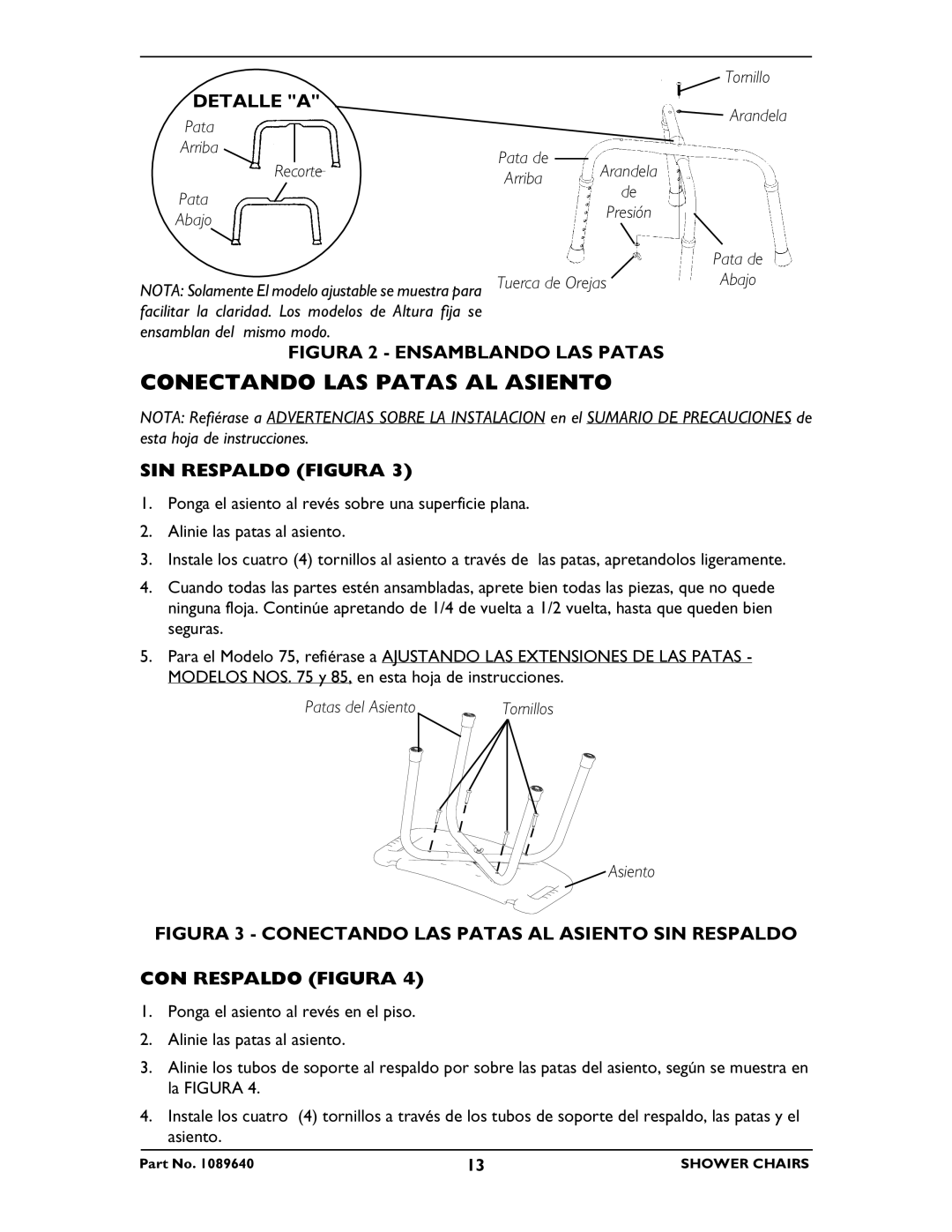75, 50, 85 specifications
Invacare is a renowned brand in the healthcare industry, known for its innovative equipment designed to improve the quality of life for individuals with mobility challenges. Among its impressive product lineup, the Invacare 85, 50, and 75 series stand out for their exceptional features, technologies, and characteristics that cater to diverse user needs.The Invacare 85 model is celebrated for its robust construction and adaptability. This wheelchair is designed with a focus on user comfort and ease of maneuverability. Featuring an adjustable seating system, it accommodates various body types and preferences, ensuring that users can maintain optimal posture. The 85 model incorporates advanced ergonomic principles, which reduce the risk of pressure sores, making it ideal for long-term users.
On the other hand, the Invacare 50 model emphasizes portability without sacrificing performance. This lightweight wheelchair is crafted with a compact frame that allows for easy transport and storage. Its foldable design is particularly beneficial for individuals who frequently travel or need to navigate through tight spaces. The 50 model is equipped with durable wheels that provide a smooth ride over different terrains, ensuring that users remain mobile and active.
Meanwhile, the Invacare 75 model combines the benefits of both the 85 and 50 models, serving as a versatile choice for users seeking a balance of comfort and mobility. It boasts features like adjustable armrests and footrests, promoting user independence. Additionally, the 75 model integrates cutting-edge technology, such as pressure relief systems and customizable seating options, which enhance overall user experience.
All three models share key characteristics that define the Invacare brand, including high-quality materials and reliable safety features. The durable frames and puncture-resistant tires ensure longevity, while safety belts and anti-tip features enhance user security during movement.
In summary, the Invacare 85, 50, and 75 wheelchair models set the standard for mobility aids. With their unique features and technologies, they cater to a wide range of user needs, combining comfort, durability, and ease of use to promote an active lifestyle. Whether for home use or on the go, these wheelchairs exemplify Invacare's commitment to enhancing the lives of individuals with mobility challenges.

